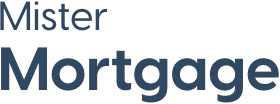
An Energy-Efficient Mortgage (EeMap) or sustainable mortgage encourages borrowers to improve their existing homes or invest in sustainable homes. The European Union backs the initiative for green mortgages.
The Paris Agreement played an essential role in making mortgages greener. The aim is to lower energy costs and reduce greenhouse emissions by 2050. More than 30 financial institutions joined the initiative in the EU.
Benefits of a sustainable mortgage in the Netherlands
1. Help the environment by reducing greenhouse emissions.
2. Your property has a higher property value.
3. You can sell your property quicker.
4. Lower your utility bills.
If you plan to purchase an energy-efficient home, you can get a discount on your mortgage interest rate in the Netherlands. The interest rate for sustainable homes is lower comparing with regular mortgages. You can get a 100% loan to value (LtV). If you plan to make your home more energy-efficient, you can borrow up to 106%.
Starting from January 1, 2024, individuals who own homes with a higher energy label (where A signifies the highest and F indicates the lowest) will be eligible to borrow more. While existing homeowners possessing less favourable energy labels can secure additional loans for implementing sustainable improvements.
What are some examples of making your home more sustainable?
1. Solar panels generate 100% sustainable energy.
2. Cavity wall insulation reduces heat loss.
3. Floor insulation.
4. Roof insulation.
5. Glass insulation.
6. Heat pumps.
Energy labels in the Netherlands
When you buy a house in the Netherlands, the property must have an energy label certificate. The same rule applies if you plan to sell the property, you are obligated to handover an energy label certificate to the buyer. Energy labels rate from A to G.
Homes with an A-label are the most energy-efficient, homes with a G-label are the least energy-efficient. More than half of the Netherlands’ houses have an energy label of D to G. The goal is to upgrade the energy labels and make them more efficient. If you purchase a house with an energy rate below A, you should keep in mind that you must invest money to upgrade it one day.
What’s do energy labels mean?
A deficient energy consumption
B low energy consumption
C relatively low energy consumption
D average energy consumption
E relatively high energy consumption
F high energy consumption
G very high energy consumption
Discounts from mortgage lenders on sustainable homes
Mortgage lenders aim to promote sustainable living by offering a discounted interest rate. The government seeks to promote energy-efficient homes and encourage landlords to improve energy performance at rental properties.
-
ABN AMRO ( up to 0.15%)
-
ING ( up to 0.15%)
-
Rabobank (0.15%)
-
Obvion (0.15%)
-
ASN Bank ( 0.1%)
-
Florius (0.1%)
Energy label requirements in the Netherlands
Energy labeling on Dutch homes became more accurate in 2021. An energy label is needed for homeowners who wish to rent or sell their properties.
How does it work?
If you own a home and want to know your energy label, you can apply online by submitting your home specifications.
How does it work if you don’t have an energy label yet?
First, you should arrange an appointment with an energy consultant to check your housing dimensions, existing insulation, and installations. The consultant calculates how much energy your house uses, including heating, water, ventilation, and cooling, based on measurements. The new energy label based on the calculations provides more information about making a home more energy-efficient. The evaluation price per apartment is € 100 and € 190 for family homes. The price is based on different factors such as house type, available documents, and the consultant’s calculations.
Sustainability changes: what should you be aware of in neighborhoods of Amsterdam
The City of Amsterdam has a clear vision of how to approach sustainability. What do the ambitious pledges mean for households and homeowners? Homebuyers in Amsterdam can now consider a number of sustainable features when buying and renovating their homes.
What are the main goals Amsterdam pledged to?
-
2030- reduction of CO2 emissions by 55% .
-
2040- termination of natural gas usage.
-
2050- becoming a circular city- everything produced and consumed will be reusable.
Saving energy, cooking with electricity, or renovating your roof by installing solar panels are just a few ideas that can lead your home towards a new way of building and thinking about homes in the future. Besides saving money, these measures can improve your own comfort. For example, proper heat insulation can make your home more balanced in hot or cold months!
The City of Amsterdam is not letting these initiatives from the residents go unnoticed. In collaboration with experts, the municipality has come up with:
-
Loan schemes for green renovations
Dutch mortgage even more sustainable
When taking out a mortgage in the Netherlands, your mortgage provider might be interested in the energy efficiency of your new home. If you meet certain criteria, they can make the conditions more favorable for you. Improving the energy label and your green renovation plans can make you eligible to borrow up to 106% loan to value (LtV).
There are multiple mortgage benefits for homebuyers that opt for a home that adjusts to sustainable standards:
-
Reduce greenhouse emissions
-
Increase your property value
-
Sell your property quicker
-
Lower your utility bills
Renovation loans
If your home is not just there yet, but you want to make an effort to create a more sustainable building, renovation loans are also accessible. Energy-saving loans are available with extra-low interest rates. This ensures that the cost of the loan will not surpass the savings on your energy bills.
Subsidies for sustainable home adjustments
he possibilities for renovations are many! A lot of the measures are free or low-cost but save you a lot of money. Further, as mentioned above, you can apply for a subsidy from the Dutch Climate Fund. This subsidy applies primarily for insulations, windows replacement, and exterior walls. After filing a so-called application form Duurzaam verbouwen and an integrated environmental permit application, you can save up to 25 000€.
Start off solid and easy
Before starting with any further steps, such as solar panels or efficient heating, ensure the insulation is in good condition. Especially losing heat through the roof can be an issue for many buildings. Smaller but nonetheless important changes also include switching to energy-efficient appliances in your new home. Who would not love to lower their bills! Light bulbs, fridges, washing machines, and dishwashers can all be purchased based on their energy efficiency.
Details on further home improvements
-
Replacing windows
Windows with HR ++ or triple glazing not only reduces the heat loss but also serves as noise cancellation. This step usually follows the roof's insulation when confronting issues of heat efficiency. -
Heat pumps
As mentioned above, natural gas will soon be a thing of the past. Further, the tax on electricity will decrease, making it financially viable to consider switching. Switching from a traditional gas boiler to a low electricity consumption heat pump leads to greater energy efficiency. The price of a heat pump requires a higher initial investment but can also be supported with a subsidy. -
Solar panels
The extent to which solar panels are efficient depends on: the roof placement, inclination of the roof location (more sunshine in the coastal area than the east of the country).
2026 update: hybrid heat pumps will be the new norm
The Dutch cabinet announced the obligatory implementation of a hybrid heat pump or a variant when replacing the current heating system. Variants include a fully electric device or connecting to a heat network. By switching to a heat pump, homeowners will help the climate lower their energy bills and reduce gas consumption. Furthermore, the government will provide a 30% subsidy per purchase.
Schedule a complimentary introductory call with our mortgage specialists. We specialize in mortgages for expats and are dedicated to navigating you through the home-buying process.
-
Get clarity on your financial possibilities.
-
Access to a trusted network.
-
Highly competitive rates and flexible terms.
-
English translations of bank documents are shared.

- 100% Independent Advice




